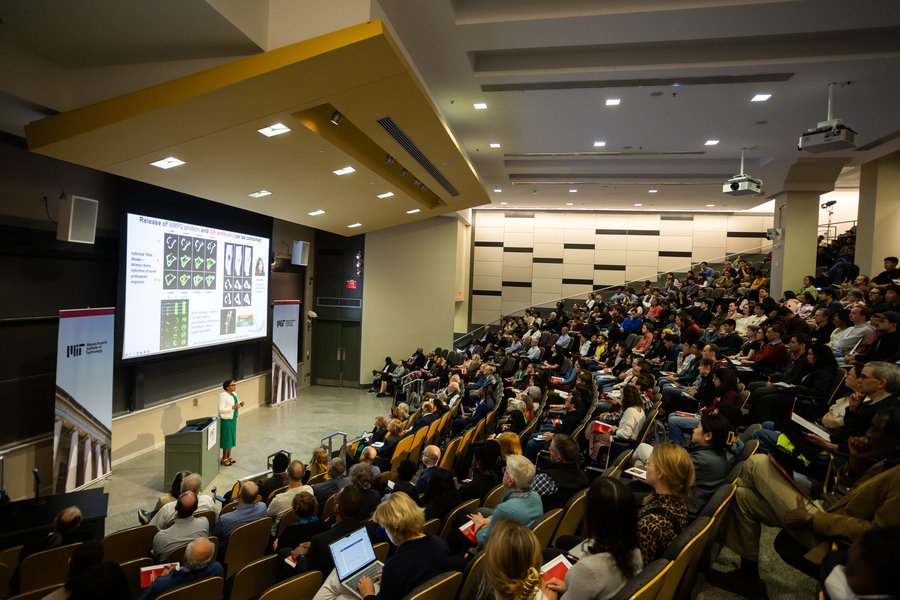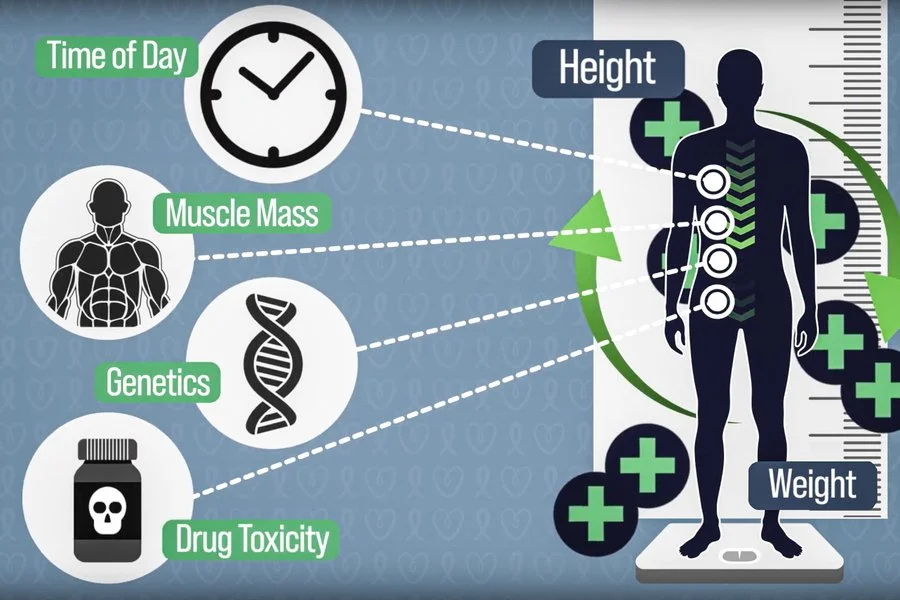May Bulletin
Issue 92
Community Notices
Register now for the Annual Marble Center Poster symposium!
The poster symposium (May 21, 3-5pm) will convene members of the Koch Institute for Integrative Cancer Research and broader MIT community working on nano- and precision based approaches for the early detection and treatment of cancer. The event will be held at the Koch Institute Luria Auditorium. This will be an in-person only event, and will be an excellent opportunity to highlight collaborative projects in this area and get feedback from faculty and industry members. REGISTRATION IS REQUIRED FOR ALL PARTICIPANTS (not just poster presenters).
Save the date: Annual MIT Koch Institute Symposium June 21, 2024
The 22nd Annual Koch Institute Symposium on Tumor Heterogeneity and Drug Resistance will take place on Friday, June 21, 2024. This year's speaker lineup features a robust array of experts, both internal to MIT and from external institutions around the US and abroad, representing multiple scientific disciplines and technical approaches that seek to better understand patient-specific variation in cancer progression and response to therapy.
Media and News
Molecular Bottlebrush Prodrugs and Antibody Bottlebrush Conjugates (Jeremiah Johnson, PhD, MIT)
Tackling cancer at the nanoscale
MIT Institute Professor Paula Hammond, a world-renowned chemical engineer who has spent most of her academic career at MIT, delivered the 2023-24 James R. Killian Jr. Faculty Achievement Award lecture. Credits: Photo: Jake Belcher
(Anne Trafton | MIT News) When Paula Hammond first arrived on MIT’s campus as a first-year student in the early 1980s, she wasn’t sure if she belonged. In fact, as she told an MIT audience yesterday, she felt like “an imposter.” However, that feeling didn’t last long, as Hammond began to find support among her fellow students and MIT’s faculty. “Community was really important for me, to feel that I belonged, to feel that I had a place here, and I found people who were willing to embrace me and support me,” she said.
Hammond, a world-renowned chemical engineer who has spent most of her academic career at MIT, made her remarks during the 2023-24 James R. Killian Jr. Faculty Achievement Award lecture.
Established in 1971 to honor MIT’s 10th president, James Killian, the Killian Award recognizes extraordinary professional achievements by an MIT faculty member. Hammond was chosen for this year’s award “not only for her tremendous professional achievements and contributions, but also for her genuine warmth and humanity, her thoughtfulness and effective leadership, and her empathy and ethics,” according to the award citation. READ MORE…
A closed-loop drug-delivery system could improve chemotherapy
(Anne Trafton | MIT News) When cancer patients undergo chemotherapy, the dose of most drugs is calculated based on the patient’s body surface area. This is estimated by plugging the patient’s height and weight into an equation, dating to 1916, that was formulated from data on just nine patients. This simplistic dosing doesn’t take into account other factors and can lead to patients receiving either too much or too little of a drug. As a result, some patients likely experience avoidable toxicity or insufficient benefit from the chemotherapy they receive.
To make chemotherapy dosing more accurate, MIT engineers have come up with an alternative approach that can enable the dose to be personalized to the patient. Their system measures how much drug is in the patient’s system, and these measurements are fed into a controller that can adjust the infusion rate accordingly. This approach could help to compensate for differences in drug pharmacokinetics caused by body composition, genetic makeup, chemotherapy-induced toxicity of the organs that metabolize the drugs, interactions with other medications being taken and foods consumed, and circadian fluctuations in the enzymes responsible for breaking down chemotherapy drugs, the researchers say.
“Recognizing the advances in our understanding of how drugs are metabolized, and applying engineering tools to facilitate personalized dosing, we believe, can help transform the safety and efficacy of many drugs,” says Giovanni Traverso, an associate professor of mechanical engineering at MIT, a gastroenterologist at Brigham and Women’s Hospital, and the senior author of the study. READ MORE…
Circadian rhythms can influence drugs’ effectiveness
Using tiny, engineered livers derived from human patients, MIT researchers found that more than 300 liver genes are under circadian control. These circadian variations affect how much of a drug is available and how effectively the body can break it down. Credits: Image: Jose-Luis Olivares, MIT; iStock
(Anne Trafton | MIT News) Giving drugs at different times of day could significantly affect how they are metabolized in the liver, according to a new study from MIT. Using tiny, engineered livers derived from cells from human donors, the researchers found that many genes involved in drug metabolism are under circadian control. These circadian variations affect how much of a drug is available and how effectively the body can break it down. For example, they found that enzymes that break down Tylenol and other drugs are more abundant at certain times of day.
Overall, the researchers identified more than 300 liver genes that follow a circadian clock, including many involved in drug metabolism, as well as other functions such as inflammation. Analyzing these rhythms could help researchers develop better dosing schedules for existing drugs. “One of the earliest applications for this method could be fine-tuning drug regimens of already approved drugs to maximize their efficacy and minimize their toxicity,” says Sangeeta Bhatia, the John and Dorothy Wilson Professor of Health Sciences and Technology and of Electrical Engineering and Computer Science at MIT, and a member of MIT’s Koch Institute for Integrative Cancer Research and the Institute for Medical Engineering and Science (IMES). READ MORE…
Women in STEM — A celebration of excellence and curiosity
(From left to right): Professors Sangeeta Bhatia, Ann Graybiel, Paula Hammond, and Mary Fuller. Credits: Photo: Safia Benyettou
(Dario Salati | Sharece Corner | MindHandHeart) What better way to commemorate Women's History Month and International Women's Day than to give three of the world’s most accomplished scientists an opportunity to talk about their careers? On March 7, MindHandHeart invited professors Paula Hammond, Ann Graybiel, and Sangeeta Bhatia to share their career journeys, from the progress they have witnessed to the challenges they have faced as women in STEM. Their conversation was moderated by Mary Fuller, chair of the faculty and professor of literature. READ MORE…
Jobs
E14 VC Fellowship application is now open! If you're passionate about science, technology, startups, and venture capital, the E14 Fund VC Fellowship could be for you. We're seeking graduate students, postdocs, and MBAs who can dedicate a few hours each week to shadow E14 Fund Partners, connect with MIT startup founders, conduct due diligence, organize events, engage with portfolio companies, and gain investment experience by writing checks. APPLY HERE by June 1st.
Senior Scientist, Alloy Therapeutics. As a Senior Scientist, you will work with our Discovery Services team to support the discovery of antibody-based therapeutics. You will be using the very latest protein analytics tools and protocols with the ultimate goal of helping others to make better medicines. This role requires an enthusiasm for biochemical and biophysical characterization of antibodies, including bispecific and multispeicfic antibodies. This role will report to our Senior Director of Global Bioanalytics with autonomy owning various stakeholders, projects, and tasks in a dynamic start-up environment while keeping up the pace of Alloy. Read more…
Co-op, Nanoparticle Process Development, Strand Therapeutics. Strand is looking to build a team that understands the value of working at a start-up. Joining the company now means having vast opportunities to learn and grow including having the exposure to all aspects of building a company. We are looking for people who have the enthusiasm and motivation to be a highly contributing member of a small team. This opportunity will offer the employee the ability to work closely with the founding team, as well as to form close partnerships with team members during the development and formation of the company. We are looking for a Co-op, Nanoparticle Process Development to join the Technical Operations team at Strand Therapeutics. The incoming co-op will work with the Technical Operations teams by supporting in production and scale up of LNPs with nucleic acid payload. The candidate will be expected to work in an innovative, fast-paced, and collaborative biotech environment. Read more…
Funding opportunities
| Funding Source | Grant ID | Deadline | Dr. Ralph & Marian Falk Medical Research Trust: Catalyst Awards Program | N/A | June 18, 2024 | Hirshberg Foundation for Pancreatic Cancer Research: Seed Grants | N/A | August 15, 2024 |
|---|










